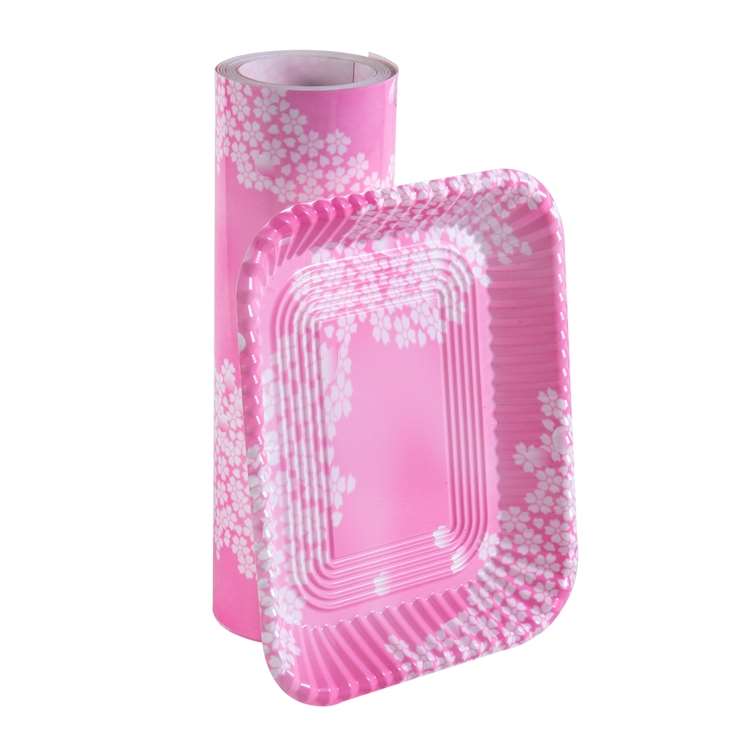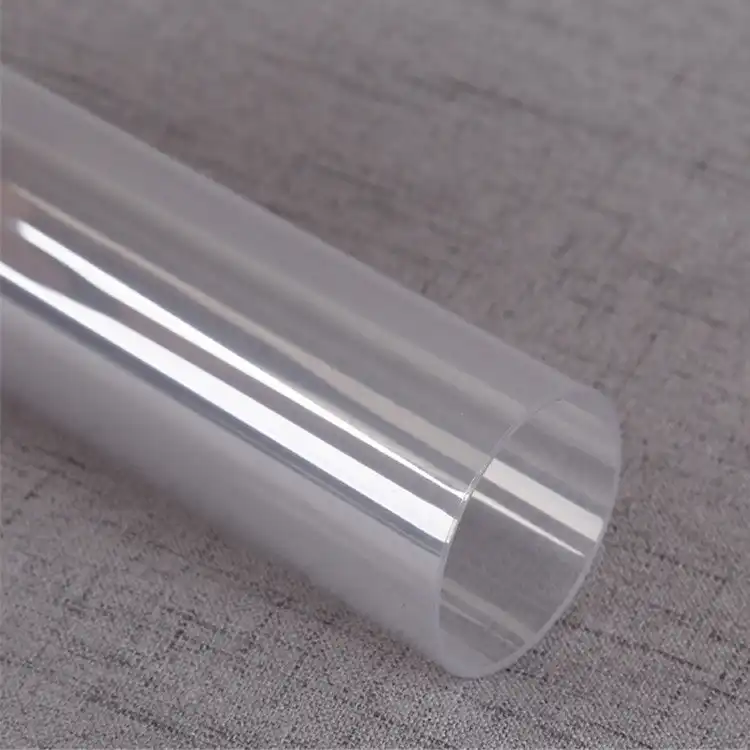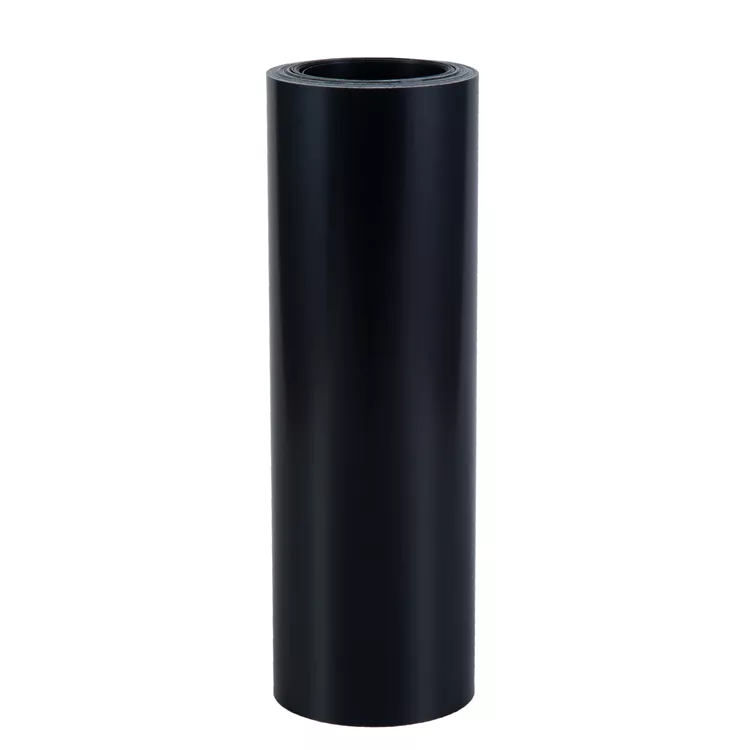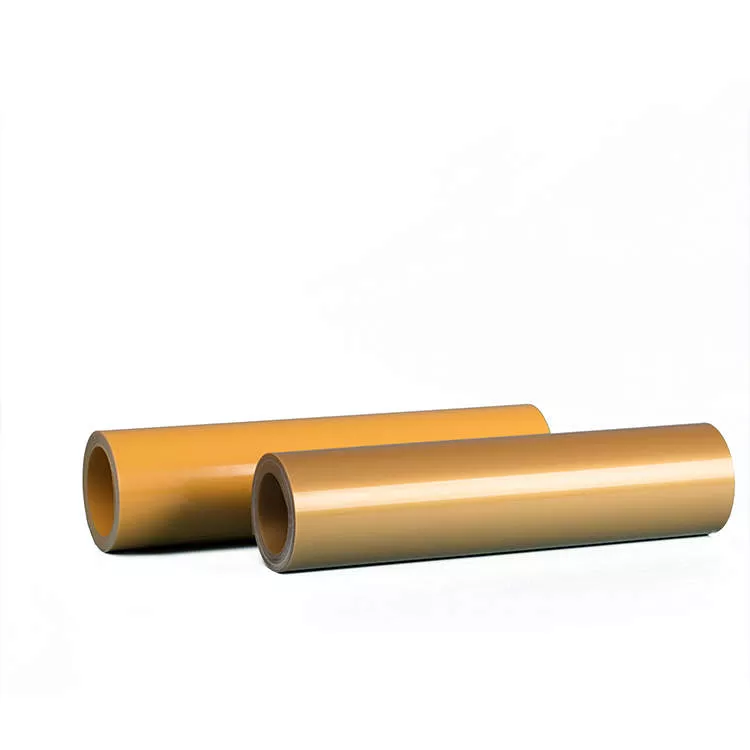
FDA Compliant HIPS Plastic Roll
Pulixin is an excellent and leading plastic sheet Manufacturer & factory in China. We have advanced technology and equipment, mature foreign trade and export experience, and have established good cooperative relations with customers in more than 60 countries. Free samples supply, OEM & ODM accepted
- Brand: PULIXIN
- Origin: Shanghai, China
- MOQ: 5 tons
- Thickness: 0.3~2mm
- Width: 300~850mm
- Application: Thermoforming
- Send Inquiry
-
- Email: [email protected]
- Phone: +8615221762039
- WhatApp

- Wechat

Introduction of FDA compliant HIPS plastic roll
FDA compliant HIPS (High Impact Polystyrene) plastic rolls are rolls of plastic material that adhere to the regulations set forth by the United States Food and Drug Administration (FDA) for materials intended for contact with food. These regulations ensure that the plastic material used in the production of these rolls is safe for food packaging and other applications where direct or indirect contact with food may occur.
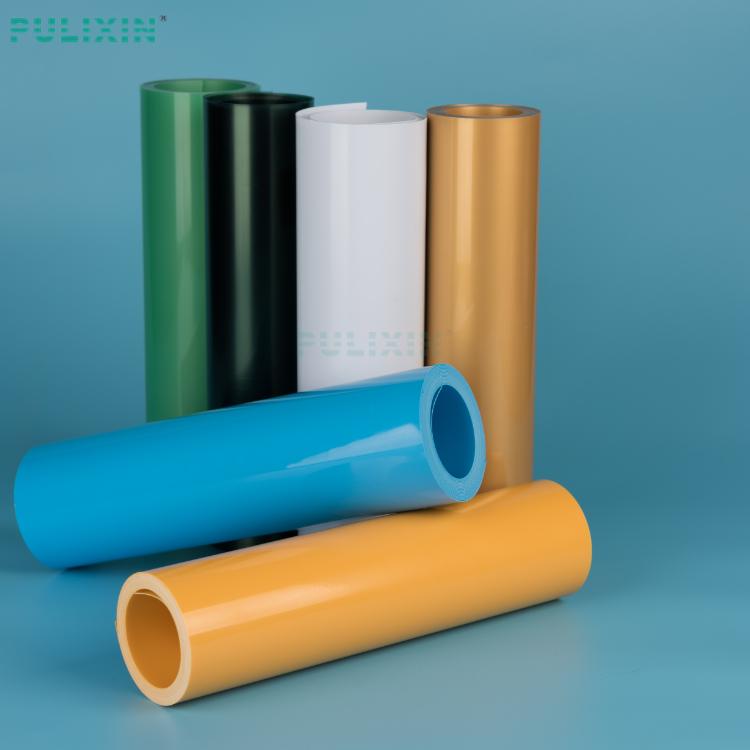
For a HIPS plastic roll to be considered FDA compliant, it must meet certain criteria specified by the FDA regarding the types of substances that can be used, the manufacturing processes involved, and the conditions under which the material comes into contact with food. This typically includes using FDA-approved raw materials, additives, and colorants, as well as adhering to specific manufacturing practices to minimize the risk of contamination.
In essence, an FDA compliant HIPS plastic roll is one that has been manufactured and processed in accordance with FDA regulations to ensure its safety for use in food-related applications. These rolls are commonly used in packaging for food products, as well as in other industries where regulatory compliance with FDA standards is required.
Advantage of FDA compliant HIPS plastic roll
Using FDA compliant HIPS plastic rolls offers peace of mind to manufacturers, retailers, and consumers by ensuring that the packaging materials meet stringent safety and regulatory standards.
1. Food Safety: FDA compliance ensures that the plastic material used in the rolls meets strict safety standards for contact with food. This helps prevent contamination and ensures the safety of the food products packaged with these rolls.
2. Regulatory Compliance: Using FDA compliant materials helps businesses meet regulatory requirements for food packaging and other applications where FDA compliance is necessary. This reduces the risk of non-compliance penalties and legal issues.
3. Consumer Confidence: Consumers are more likely to trust products that are packaged with FDA compliant materials, knowing that they meet government regulations for safety and quality.
4. Versatility: HIPS plastic rolls are versatile and can be used for various applications beyond food packaging, such as in medical packaging, consumer goods, and industrial applications. Ensuring FDA compliance broadens the potential market for these rolls.
5. Durability and Performance: HIPS plastic is known for its durability and impact resistance, making it suitable for packaging applications where protection of the contents is essential.
6. Cost-Effectiveness: While ensuring FDA compliance may involve additional testing and certification processes, using compliant materials can ultimately save costs by preventing recalls, fines, and reputational damage associated with non-compliant products.
7. Compatibility: FDA compliant HIPS plastic rolls are compatible with standard packaging equipment and processes, making them easy to integrate into existing production lines.
8. Transparency and Traceability: Manufacturers of FDA compliant materials typically provide documentation and certifications demonstrating compliance with FDA regulations, providing transparency and traceability throughout the supply chain.
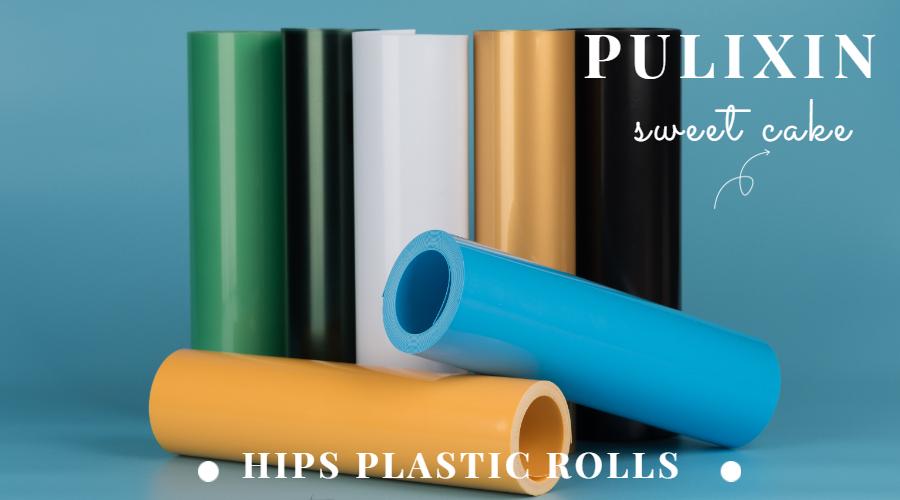
What are FDA standards?
The FDA (U.S. Food and Drug Administration) establishes and enforces standards, guidelines, and regulations to ensure the safety, efficacy, and quality of food, drugs, medical devices, cosmetics, and other products within its jurisdiction. While “FDA standards” may refer to various specific regulations depending on the product category, here are some key aspects of FDA standards:
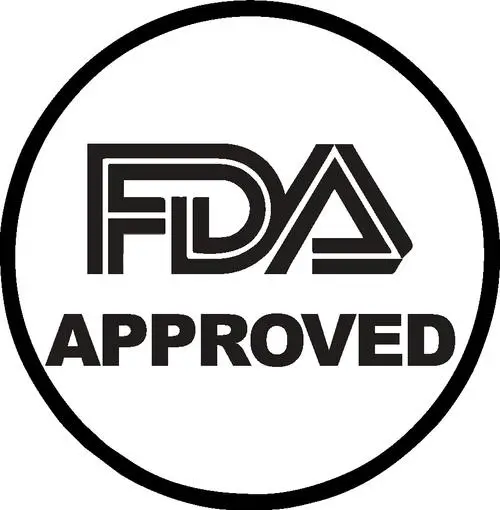
The FDA (U.S. Food and Drug Administration) establishes and enforces standards, guidelines, and regulations to ensure the safety, efficacy, and quality of food, drugs, medical devices, cosmetics, and other products within its jurisdiction. While “FDA standards” may refer to various specific regulations depending on the product category, here are some key aspects of FDA standards:
Good Manufacturing Practices (GMPs): These are regulations outlining the minimum requirements for the methods, facilities, and controls used in the manufacturing, processing, packaging, and storage of food, drugs, medical devices, and cosmetics. GMPs ensure that products are consistently produced and controlled to meet quality standards appropriate for their intended use.
Food Contact Materials Regulations: The FDA regulates materials that come into contact with food to ensure they are safe for consumption. This includes standards for packaging materials, food utensils, processing equipment, and other items that may contact food during production, storage, or preparation.
Food Safety Modernization Act (FSMA): Enacted in 2011, FSMA aims to prevent foodborne illness by shifting the focus from responding to contamination to preventing it. It includes regulations on preventive controls, food safety plans, hazard analysis, and risk-based preventive controls for human and animal food.
Drug Approval Standards: The FDA establishes rigorous standards for the approval of pharmaceutical drugs and biologics, including requirements for preclinical studies, clinical trials, manufacturing processes, labeling, and post-market surveillance.
Medical Device Regulations: The FDA regulates medical devices to ensure their safety and effectiveness. This includes classification of devices into different risk categories, premarket approval or clearance processes, quality system regulations, and post-market surveillance.
Cosmetic Regulations: The FDA regulates cosmetics to ensure they are safe for consumer use. This includes requirements for labeling, ingredients, manufacturing practices, and adverse event reporting.
Parameter of FDA compliant HIPS plastic roll
|
Product Name |
HIPS Plastic Rolls Price |
|
Material |
HIPS vacuum forming material , 100% raw material |
|
Color |
Transparent,black,green or any customized color |
| Thickness Tolerance |
According to GB (higher than GB) |
|
Application |
Vacuum forming packaging, Printing, Bending, Folding box, Cards,etc. |
|
Width |
300~1400mm or Customized |
|
Thickness |
0.15~3mm or Customized |
|
Special Treatment |
Metalized, Anti-UV, Waterproof, Antistatic, Anti-fog, Frosted, Cold |
|
Features |
1.High temperature resistance, not easily melted |
|
Sample Time |
1-3 days |
|
Delivery Methods |
Ocean shipping ,air transportation, express,land transportation |
|
Payment Term |
Credit card ,T/T,L/C,Western Union,Paypal |
|
Mass Production Lead Time |
3-15 days depend on order quantity |
|
Certificate |
ROHS,MSDS,TDS,SGS,ISO9001 |
|
Core Diameter |
3 inch or 6 inch depend on customer requirement |
|
Packing |
Packing in rolls and plastic pallet,pp woven with PE film and strape on pallet |
Processing of FDA compliant HIPS plastic roll
Processing FDA-compliant HIPS (high impact polystyrene) plastic rolls requires following a series of strict processes and standards to ensure the plastic rolls are safe and comply with FDA food contact requirements. The following is the general process for processing FDA compliant HIPS plastic rolls:
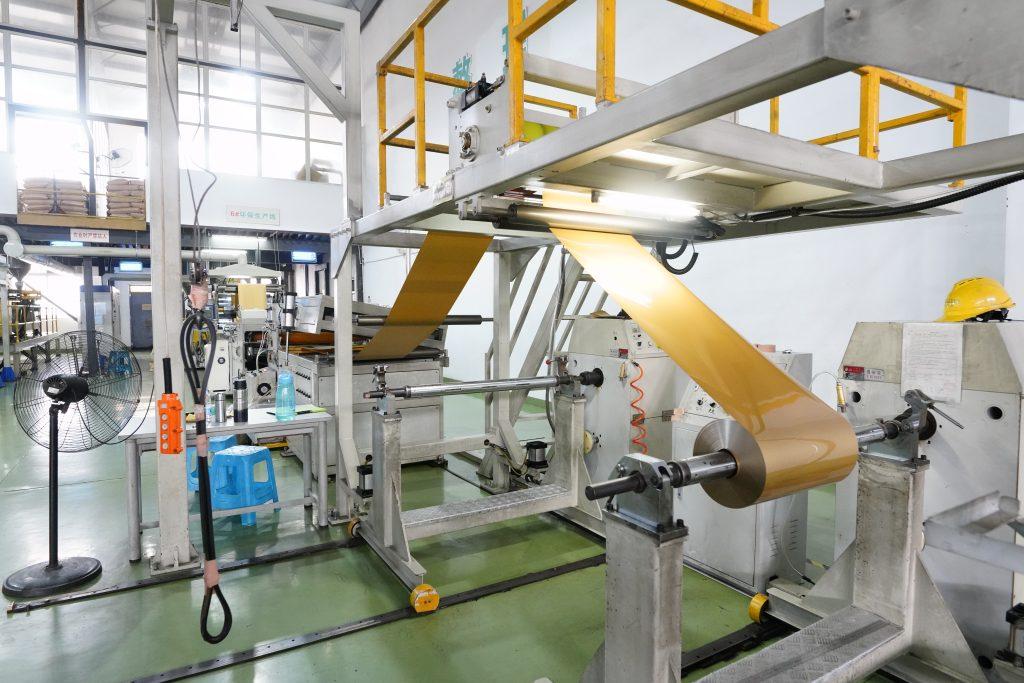
Raw material selection: Choose raw materials that meet FDA standards. These raw materials must be approved and suitable for food contact to ensure their safety and quality.
Production equipment and environment: Ensure that production equipment and production environment comply with GMP (Good Manufacturing Practice) requirements, including equipment cleaning, disinfection and maintenance, and employee hygiene standards.
Production process control: Establish strict production process control, including monitoring and control of temperature, pressure, speed and other parameters to ensure product consistency and quality.
Use of additives: If additives need to be used during processing, ensure that the selected additives comply with FDA requirements and that the dosage is within the allowable range.

Quality control and testing: Establish a quality control system, including raw material inspection, in-process inspection and finished product inspection, to ensure that products comply with FDA standards and regulations.
Records and documentation: Record key parameters and data during the production process, and retain relevant documents and records for FDA review and verification.
Certification and review: Conduct third-party certification or review as needed to ensure that the product meets FDA requirements and obtain relevant certifications and certificates.
Tracking and traceability: Establish a product traceability system to ensure that the production and circulation process of the product can be traced to deal with possible quality problems and recalls.
Why Choose Pulixin
PULIXIN is an excellent leading PP plastic sheet roll manufacturer in China. Our factory covers an area of more than 10,000 square meters and has 4 rigid polypropylene sheet production lines with international advanced equipment. It can produce 3,000-5,000 tons of PP plastic sheets per month, and the maximum storage capacity exceeds 10,000 tons.- High Level Factory

- 1, 6000㎡ Area
2, 10 co-extrusion lines
3, 15 years experience
4, 2300+ regular customers
- Considerate Service

- 1, Quick reply to inquiries
2, Free sample on paying the postage
3, Strong capacity, short production and fast delivery
4, Factory inspection acceptable
5, OEM Support
- Strict Quality Control

- 1, Thickness error:+-0.1mm
2, Weight erroe:+-1kg
3, Antistatic impedance: +-0.1Ω
- On Time Delivery

- 1, Production: 1days after prepayment
2, Delivery: 5days after final payment


